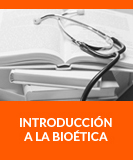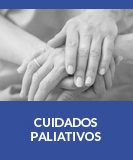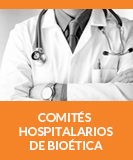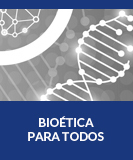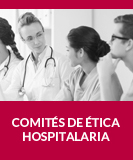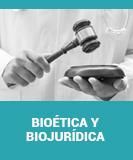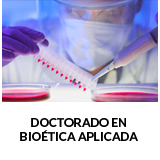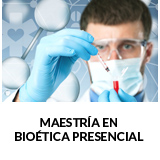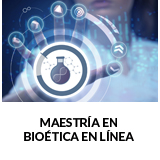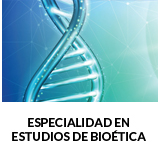
Versión en español
| MONTHLY NEWS | |
 |
|
|
The II Winter 2021 Research Colloquium of the Faculty of Bioethics was held On December 10, the "II Winter 2021 Research Colloquium" of our Faculty of Bioethics was held, a space in which several projects from undergraduate to doctorate level were presented. The event was inaugurated, and we heard the welcome by our director, Dr. Fernando Fabó. Continuing with the presentation of María Fernanda Mendoza, consultant of the International Authors Forum, Title: "Copyrights and anti-plagiarism culture", in which she stressed the need to raise awareness in society regarding this issue and to create strategies within educational institutions to stimulate actions of academic honesty. |
|
 |
|
|
Latin American Ecclesial Assembly, what's next? Mauricio served as part of the listening committee of the Latin American Ecclesial Assembly and was also secretary of the Pan-Amazonian Network and currently collaborates in the section of the CELAM pastoral commissions. In his talk, he shared with us the importance of delving into synodality as an essential method of our Church understood as the People of God and that although it is not a novelty of this Pontificate but has constituted the way of being and walking throughout the Centuries of the Church, yes it has been strongly promoted by Pope Francis with two previous synods such as that of the Family and that of young people and, now the so-called "Synod of Synodality" whose official name is the Synod of Bishops that It already started in October 2021 and is expected to end in October 2023.
|
|
 |
|
|
Our graduate participates in the book "Bioethical Culture in Contemporary Society" On November 23, 2021, the doors of the "Octavio Paz" Ibero-American Library were opened in Guadalajara for the presentation of the new book: "Bioethical Culture in Contemporary Society". This publication was made thanks to the support of the State Bioethics Commission of Jalisco and had its origin in the interdisciplinary Bioethics course. The chapter on informed consent in medical care and research was written by Dr. Samuel Weingerz Mehl, who is a graduate student from both the master's and doctoral degree from the School of Bioethics. He is currently a full member and vice president of the Mexican National Academy of Bioethics and teaches courses in the academic programs of the Faculty.
|
|
| MONTHLY EVENTS | |

|
|
|
Check the upcoming events:
|
|
| MEDICINE AND ETHICS JOURNAL | |
 |
|
|
We open this year 2022 and volume XXXIII of our journal with the sad news of the death of Dr. Justo Aznar, which occurred in November 2021. We deeply regret the loss of Dr. Justo Aznar, a member of our Scientific Council, who leaves a valuable legacy for Bioethics. The crisis experienced due to the pandemic created by COVID-19 has developed the urgent need to expand the horizons of bioethics, to bring it to the reflection and solution of problems that concern all human beings and that are intrinsically connected with each other. others. Today more than ever it is necessary to think about human relations and the environment we inhabit, attending to particular and local circumstances from a global horizon, methodology, principles and proposals. Today the problems are no longer individual; now they are collective and shared, on a global scale, persistent over time, and require great collective efforts to mitigate and eradicate them. Thus giving the slogans with which global bioethics arises. In the first article, Henk ten Have, presents his article COVID-19 and global bioethics, where he proposes three approaches to respond to the pandemic: a) exceptionality, b) controllability, and c) the binary approach. With what helps to recover the relationship between people, as well as solidarity, which are the fundamental principles to recover the dignity and protect the health of human beings. In the second article by Cristina de la Cruz "Bioethics and global justice. Critical analysis of the global COVID-19 vaccination strategy", the author considers the ethical problem of the criteria for the distribution of vaccines from global justice. Discussing thus, proposals for a fair distribution of vaccines, under the assumption that all countries should have the right to access them, since health is a common good and an international human right. In the third article of this issue, "Global bioethics: new arguments about animal rights?", by Gómez Álvarez, allows a renewed discussion around the old problem about whether or not animals have rights and, after analyzing the existing bibliography, discovers that the arguments used are almost always the same, with the exception of some that are novel. In the fourth article "Bioethical implications in the contagion effect of suicide", by Érika Benítez, she looks at a painful reality that has become more acute in this time of pandemic, which is suicide. The perspective from which the author addresses this problem is from the role and responsibility of the media in the "contagion effect" of suicide. The article by Pasquale Gallo and Joseph Tham, "Comparison of NaProTechnology with Assisted Reproduction Techniques" where they present an interesting approach to NaProTechnology in comparison with current assisted reproduction techniques. The last article in this issue, "Self-assessment of knowledge and application of the code of conduct by public health servants in Tlaxcala", Óscar Castañeda and Rosalba Jaramillo make an interesting analysis of adherence to the codes of conduct of public servants in a hospital in Tlaxcala, with the aim of verifying that, the greater adherence to the code, the higher level of user satisfaction and better quality in the services provided. Finally, this issue presents a review: The review that is presented is about the book "Bioethics" by Guerrero Martínez, where he offers a novel literature in the field of bioethics, since it analyzes topics that are not limited to the field of clinical bioethics, but that range from the use from biotechnologies to the debate on animal rights and, also, insofar as they are approached and reflected upon from the philosophical point of view of great thinkers, such as Kierkegaard, Gadamer, Derrida and Nussbaum. From Editorial number 1, Vol. 33.
|
|
| ARTICLE | |
 |
|
|
COVID-19 and global
bioethics – Henk ten Have.
|
|
| Resources and latest publications in Bioethics | |
 |
|
|
CONBIOETHICS RESOURCES: December catalog 2021
|
|
| Agreements | |
 |
|
|
|
|
| Meet our researchers from the Faculty! | |
 |
|
|
Who is Víctor
Manuel Martínez Bullé Goyri? Victor Manuel studied in Spain for a Specialty in Constitutional Law and Political Science at the Center for Constitutional Studies in Madrid, Specialty and Human Rights and a Doctorate in Law at the Complutense University. Subsequently, he obtained the Diploma of Advanced Studies in the Doctorate in Human Rights from the National Distance Education University of Spain. He is currently a full-time senior researcher C at the UNAM Legal Research Institute and professor and tutor in the field of Bioethics of the Master’s Program and in Medical, Dental and Health Sciences, he is currently academic coordinator of the Interdisciplinary Seminar of Bioethics. He was academic secretary of the Institute of Legal Research and held the General Directorate of University Legislation Studies, he was also academic coordinator of the Union of Latin American Universities. In the National Human Rights Commission, he held the First General Inspectorate and the General Directorate of the National Center for Human Rights. Bioethics for Victor Manuel is: From my point of view, Bioethics, beyond being a discipline that is in the process of consolidation: it is a great space for inter and multidisciplinary understanding and reflection, which allows different sciences and disciplines to share knowledge, which, given the complexity of reality, this joint effort requires a full understanding of the need for correct and ethical behavior in the different areas. Bioethics is not only the space for dialogue between different disciplines and areas of knowledge, but it encourages and demands it as a means to advance knowledge. On the other hand, Bioethics has meant an undoubted impetus for the resurgence of moral disciplines and ethical reflection on human behavior, especially in the field of medical and biological sciences, but which will have to be extended more and more to other fields. of knowledge. The research work that he has enjoyed the most has been: After more than 30 years dedicated to research, it is very difficult to choose a specific work, because all the topics that I have addressed aroused great interest in them and I enjoyed working on them; but if I had to choose one, perhaps I should say choose my undergraduate thesis, which was what sparked my interest in research and opened the doors to the academic world in which I have since developed.
|
|
|
Openings: |
|
| Posgraduate | |
|
|
|
More information:
Facultad de Bioética
MPSS
Marcela Garibay
López
marcela.garibay@anahuac.mx
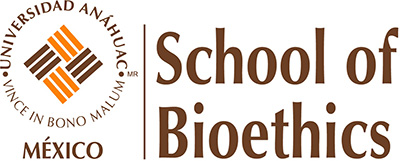
Follow us!


 Contáctanos
Contáctanos
 Contact us
Contact us

